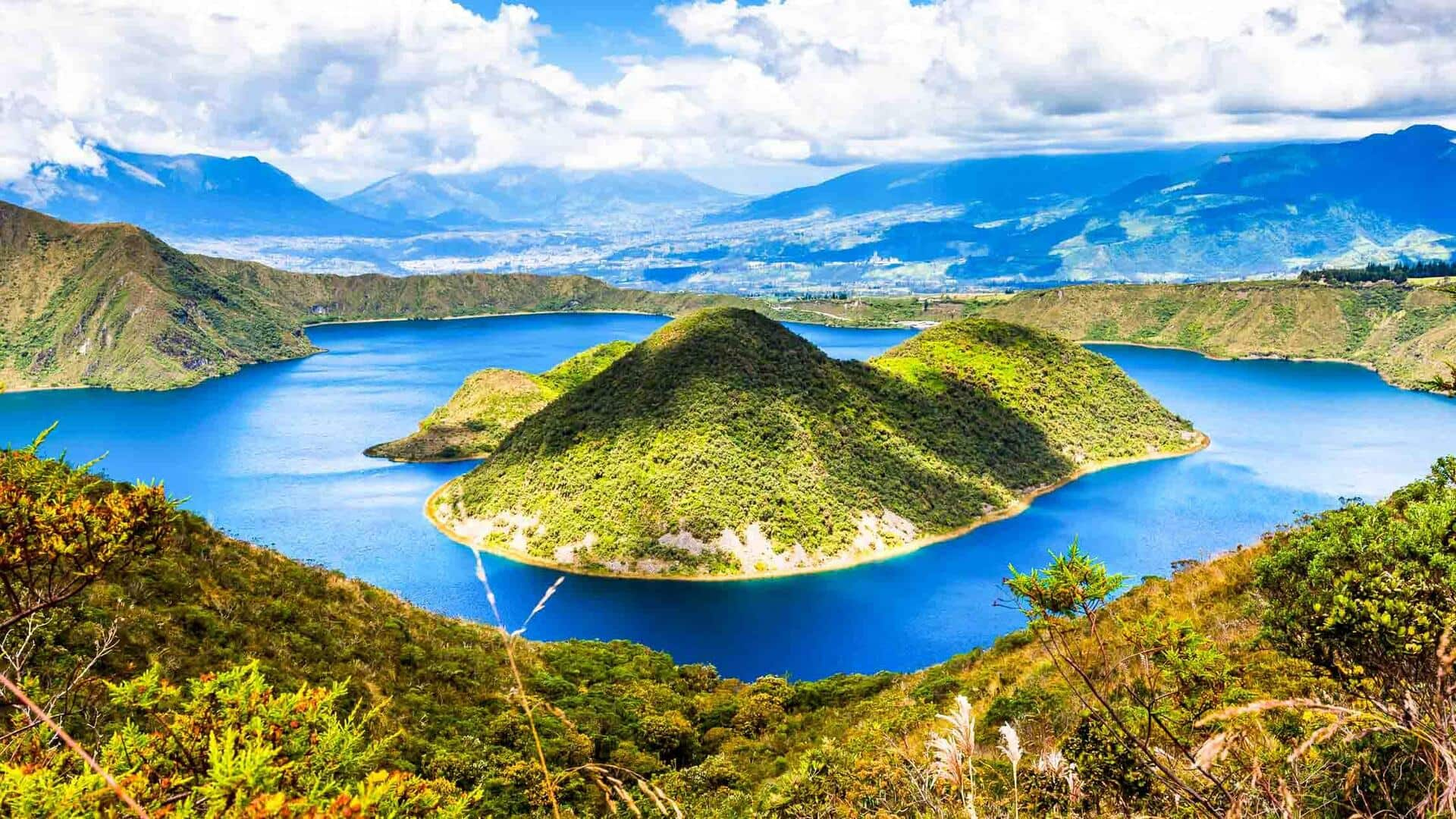
Otavalo, Ecuador: A blend of textile markets and mountain trails
What's the story
Otavalo, nestled in the heart of Ecuador, is a vibrant city celebrated for its rich indigenous culture and stunning natural landscapes.
It is a place where the traditional textile markets, offering an array of handmade crafts, meet the serene beauty of mountain trails.
This unique blend provides travelers with an opportunity for both cultural immersion and outdoor adventure, making Otavalo a distinctive destination.
Market visit
Dive into the colorful Otavalo Market
The Otavalo Market is one of the largest and most famous indigenous markets in South America.
Here, visitors can explore an array of handmade textiles, including blankets, scarves, and traditional clothing, all showcasing the intricate craftsmanship of the local Otavalenos.
It's not just about shopping; it's an opportunity to witness the rich cultural heritage and interact with local artisans.
Nature hike
Hike along the Peguche Waterfall Trail
Just a short distance from Otavalo, the Peguche Waterfall is accessible via a scenic hiking trail surrounded by lush forests.
This trail is relatively easy, making it suitable for hikers of all levels.
The sound of cascading water amidst tranquil nature offers a perfect escape from the bustling market life.
It's an ideal spot for peace and natural beauty seekers.
Crater exploration
Discover Cuicocha Lake's crater rim
For those seeking more adventurous hikes, Cuicocha Lake presents an exhilarating challenge.
This stunning crater lake lies at the foot of Cotacachi Volcano.
Hiking around its rim provides panoramic views that are simply unmatched - clear blue waters contrasted against rugged mountain peaks.
The hike takes several hours but rewards with breathtaking vistas and serene nature spots, perfect for picnics.
Cultural workshop
Engage with local weaving workshops
To truly understand Otavalo's textile fame, joining a local weaving workshop is crucial.
These workshops offer a hands-on experience with traditional weaving techniques, under the guidance of skilled artisans.
This activity is not just educational but also supports sustainable tourism by benefiting local communities directly.
It allows for a deeper appreciation of the craft while contributing to the local economy.